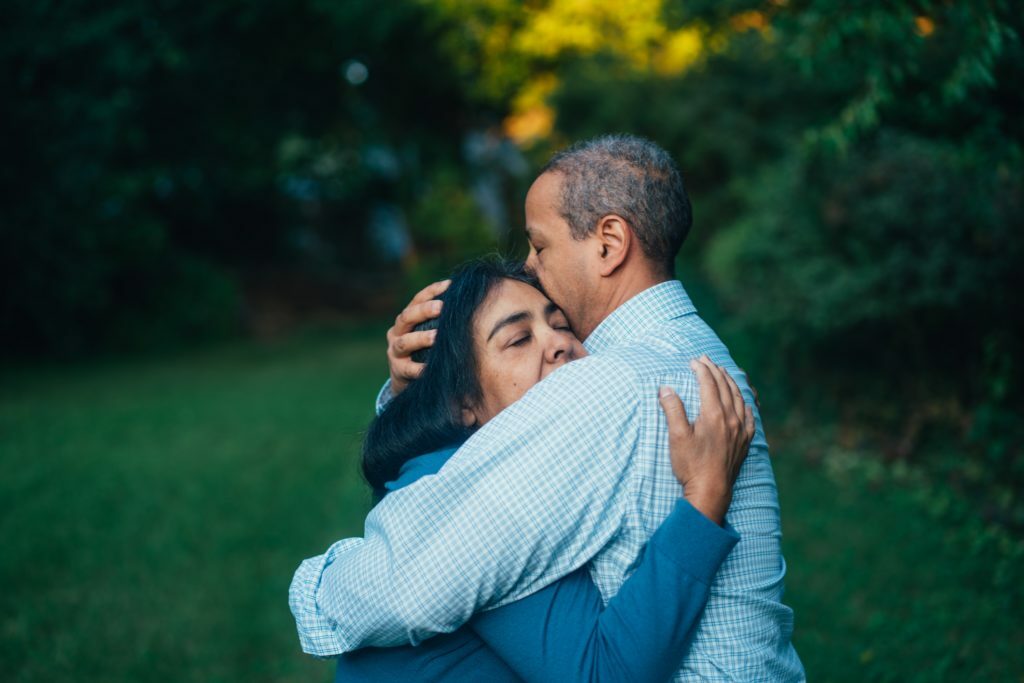The Healing Powers of Forgiveness

The act of forgiving can be difficult, but it’s important to remember that forgiveness has healing powers and it benefits your own peace of mind. Learning to forgive can help you move on from hurtful experiences and create a more positive outlook on life, and according to a survey by the nonprofit Fetzer Institute, 62 percent of American adults say they need more forgiveness in their personal lives, “choosing to offer compassion and empathy to the person who wronged you.” If you’re struggling to forgive someone, keep reading.
If you’ve ever been hurt by someone, you know that there’s a lot of pain and anger that can lingered after the situation is over. It can be hard to let go of what happened, and forgiveness can be a key step in healing those wounds. But does forgiveness actually work?
There’s a lot of anecdotal evidence that suggests forgiveness can be beneficial, but there isn’t a lot of scientific research to back up these claims. Some studies have shown that people who forgive tend to have less emotional pain and are overall happier than those who don’t. But other studies have found that forgiving someone doesn’t always lead to positive outcomes, such as increased levels of trust or happiness in the relationship.
While it’s likely that forgiveness can be an important step in healing from a hurtful experience, the jury is still out on whether or not it’s completely effective.
That said, forgiveness is a personal decision that each person has to make for themselves. So if forgiving someone feels like the right thing to do, go ahead and do it. It may help you feel better in the short-term, but ultimately it’s up to you to decide how you want to handle the pain from your past.
We all make mistakes. It’s part of being human. But when someone we care about hurts us, it can be hard to forgive and move on. If you’re struggling to forgive someone, know that you’re not alone. In this article, we’ll explore the art of forgiveness and how it can help you heal.

What is forgiveness and what are the benefits of forgiving?
Forgiveness means letting go of resentments that keep us tied to the wrong committed against us. It means to heal and move forward with life without allowing anger, hurt or unproductive rumination to waste too much of our mental or emotional energy. In this respect, forgiveness is as much (or more) for ourselves as it is for the other person or people.
Christiana Care
First, try to understand why you’re holding onto anger and resentment. What purpose does it serve? Is it worth carrying around this negative emotion? If not, let it go.
It can also be helpful to talk to the person you’re having trouble forgiving. This can be a difficult conversation, but it can help you understand their perspective and see the situation from their point of view. It’s also possible that they’re struggling with guilt and could use your forgiveness.
Finally, remember that forgiveness is a choice. You don’t have to forget what happened or pretend it didn’t hurt, but you can choose to let go of the anger and move on. Forgiveness takes time and effort, but it’s worth it for your own peace of mind.
If you’ve ever been hurt by someone, you know that there’s a lot of pain and anger that can lingered after the situation is over. It can be hard to let go of what happened, and forgiveness can be a key step in healing those wounds. But does forgiveness actually work?
There is no single answer to this question, as forgiveness is a personal experience and varies from person to person. However, some common definitions of forgiveness include:
1) letting go of anger, resentment and bitterness towards a person or offence
2) pardoning someone for an action that has harmed or offended you
3) resolving to forgive someone even if they have not apologized
4) allowing oneself to be changed by the forgiveness process
5) forgiving yourself for your own past transgressions
6) seeing past offenses as part of a larger pattern of behavior that does not need to continue.
When we forgive someone, it means that we are willing to let go of what is hurting us. Forgiveness allows us to move on from the hurt and anger that we feel and replaces them with love and understanding. It allows us to start fresh and build new relationships instead of repeating the cycle of hurtful behaviour.
It is never easy to move from suffering to forgiveness, this is a process that requires time, patience and effort. However, there are some things that can help ease the process including: communicating with the person who has hurt you, exploring your feelings and can have different outcomes. Here are the top five benefits of forgiveness:
1. Forgiveness reduces stress and anxiety.
2. It allows for a more positive outlook on life.
3. It makes it easier to build new relationships.
4. It helps you move on from past grievances and pain.
5. It can lead to a healthier sense of self-esteem.
How strong is our capacity for healing and forgiveness?
How strong is our capacity for forgiveness and how does that serve you, when your heart have been ripped to the core, crushing de-stabilizing raw emotion that rocks your very belief systems and values? The strength of your capacity for forgiveness will vary depending on the individual and their relationship with the person you are forgiving. If you want to forgive someone but you don’t know where to start, some a few easy steps:
1. Try to understand why the person did what they did.
2. Do not hold onto grudges or resentment against the person.
3. Let go of any negative feelings that you may have towards the person.
4. Make sure that you communicate with the person about your forgiveness, so that they know that it is genuine.
Forgiveness is a commitment to a personalized process of change.
Mayo Clinic

Steps to forgiveness and healing
When it comes to forgiving someone, there are a few things to keep in mind. Here are five tips to help you decide when to forgive someone:
1. Give yourself time to process the hurt and anger you feel.
2. Consider your motives for forgiving the person. Is it out of empathy or guilt?
3. Remember that forgiveness does not mean you have to forget what happened. It’s okay to revisit the event and feel the hurt and anger again, but forgiveness is still a decision you make.
4. Make sure you’re emotionally ready to forgive the person before you do so. Forgiveness should not be taken lightly because it can lead to healing on both sides.
5. If you find it difficult to forgive someone, talk about it with someone you trust – a therapist, friend, or family member might be able to offer some constructive advice.
While forgiveness may feel empowering in the moment, it can also have long-term consequences. Forgiveness is a process, not an event, and our capacity for forgiving is never-ending. It’s important to be mindful of this when dealing with people who hurt us – we need to allow ourselves time and space to heal from the pain before trying to forgive them. However, if we are able to forgive them – even after enduring some tough struggles along the way – then hopefully they will be more likely to behave in a compassionate way towards us in the future.





